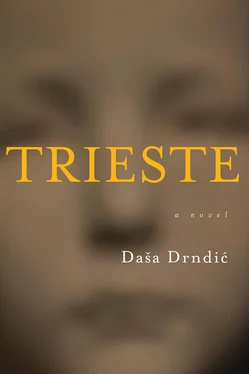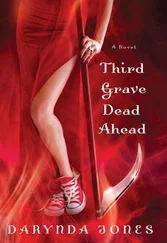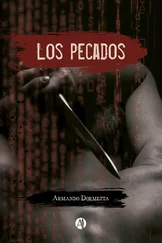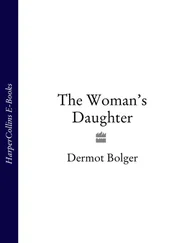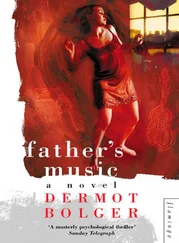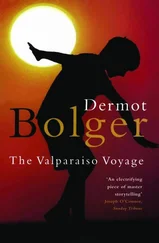Karl-Otto Saur Junior is still wearing his hair long to hide the bull neck he inherited from his father, the sturdy Karl-Otto Saur Senior, the last head of the technical office at the Armaments Ministry of the Third Reich, whom Hitler, in his crazy will of 1945, named as Speer’s successor. Karl-Otto Saur comes through the Nuremberg trial with no conviction, because he agrees to testify against Krupp in the Krupp Affair. Karl-Otto Saur embarks on a better life in 1946, released from charges and guilt, even from the guilt of employing hundreds of thousands of Hungarian Jews in the production of weapons for exterminating the selfsame Hungarian Jews he “employed”, which was evident, later, at the Wehrmacht exhibition in Berlin and cities throughout Germany, at which point I see many events much clearer, and because of this monstrous clarity I sleep less and nauseatingly badly. This same Karl-Otto Saur Senior, the one who opens up an engineering office after the war and then starts a publishing firm, which thrives today under the guidance of his elder son Klaus-Gerhard Saur, has descendants whose hair is unusually shaggy, reaching down to their shoulders, as if with their long hair his descendants will cover the possibility of history repeating itself, but they won’t, with their long hair they’ll cover nothing but their necks, so reminiscent of the neck of their father. We should probably be able to learn something from the repetition of history, repetitio est mater studiorum, but despite the fact that history stubbornly repeats itself, we are bad learners, and History, brazen and stubborn, does not desist, it goes right on repeating and repeating itself, I will repeat myself until I faint, it says, I will repeat myself to spite you, it says, until finally you come to your senses, it says, yet we do not come to our senses, we just grow our hair, hide and lie and feign innocence. Besides, for some of us, those of us who like Santa Claus lug sacks on our backs, sacks brimming with the sins of our ancestors, History has no need to return, History is in our marrow, and here, in our bones, it drills rheumatically and no medicine can cure that. History is in our blood and in our blood it flows quietly and destructively, while on the outside there’s nothing, on the outside all is calm and ordinary, until one day, History, our History, the History in our blood, in our bones, goes mad and starts eroding the miserable, crumbling ramparts of our immunity, which we have been cautiously raising for decades.
At this point I, Hans Traube, do some research, and I learn that Hermine Braunsteiner was born in Vienna in 1919, that she was raised in a strict Catholic family, that she joined the S.S. in 1939, and from then on worked as a guard at the concentration camps in Poland. I learn that the Austrian Court for War Crimes sentences Hermine Braunsteiner to three years in prison in 1948 and that she is released nine months later by that same court. I learn that until 1957 Hermine Braunsteiner works as a saleswoman in picturesque tourist towns in Austria, then meets her future husband, an American called Russell Ryan, and goes with him first to Halifax, Canada, then to the United States. I learn that Hermine Braunsteiner-Ryan lives in peace until 1968, when she is discovered by Simon Wiesenthal, and thanks to Wiesenthal is extradited to Germany and tried in Düsseldorf for the murder of “at least 1,181 camp inmates” and for being a co-perpetrator in the murder of another 705 persons. She is sentenced in 1981 when she is sixty-one and has many lovely memories, when she remembers her happy days, when she has grown children, American, who might cherish an affection for whips and high boots. Of course, these little histories that I research surface only after 1998, because until 1998, until Martha Traube informs me of the agonizing truth of my birth, I dig into nothing, into no past, just as many others never do, why should they, life goes on, look to the future, people tell themselves, tell them, tell us, everybody says so, at home, at school, on stage, parents say so, friends say so, and politicians, priests say so, and the Church. Then, when I least expected it, the Past jumped out at me in a flash, hop! like a carcass, like some rotten corpse, it draped itself around my neck, plunged its claws into my artery and it still isn’t letting go. I’d like to shake it off, this Past, but it won’t let me, it swings on me as I walk, it lies on me while I sleep, it looks me in the eyes and leers, See, I’m still with you. Like Hermine Braunsteiner’s boots, the Past, my Past, our Past, presses up against my face, which, beneath it, contorts in a grimace like the grimace of a crazed detainee whose innocence or guilt has yet to be determined.
Listen, my colleague says to me, Tipura said, this Stille Hilfe is a fairly repulsive organization and it is run by Frau Gudrun Burwitz, who is actually Frau Gudrun Himmler, says my colleague, Tipura told me. So off we went to see what’s what. Time has stopped for Gudrun, but on the other hand it hasn’t. Gudrun’s name is no longer Himmler but Burwitz, yet she behaves like a Himmler and dreams Himmlerian dreams, said Tipura. Gudrun Himmler Burwitz’s daughter is neither a Himmler nor a Burwitz, women have it easier, they can always take their husband’s name, right? said Tipura, though men can change their names too, when necessary, why not? There, in Gudrun Himmler Burwitz’s house, we met her daughter, who was very upset by our visit , Tipura said. Gudrun Himmler Burwitz’s adult daughter was completely beside herself when we came. She leapt at us, don’t you dare air my mother’s name in public, she threatened, Tipura said. None of my friends know who my mother is, cried Gudrun Himmler’s daughter, even my husband doesn’t know, she said , Tipura told me, which was remarkable information for me, Tipura said. What about Himmler’s children born out of wedlock, the two Himmler had with his secretary Hedwig Potthast, who he moved into a newly furnished villa near the rest of Hitler’s cronies so that everything would be as she wished? What about Helge Potthast Himmler, born in 1942, and his sister Nanette Dorothea Potthast Himmler, born two years later? wondered Walter Tipura. If they are alive, what do they tell their children and grandchildren? Do any former Nazis and their descendants suffer from post-traumatic stress disorder? Do they ever manifest symptoms of P.T.S.D., little hints suggesting that their soul is attacking their body and their body is burrowing through their soul? Katrin Himmler, the daughter of Heinrich’s nephew, a 37-year-old scientist, married to a Jew (I no longer see this as coincidence), a Jew whose relatives disappeared in the Polish death camps, is beside herself: I dread the day I will have to tell my son that one half of his family exterminated the other half, says Katrin Himmler, Tipura told me. She dreads it so much that she started writing books about it, about Heinrich Himmler’s brothers, about their children, who are her uncles , Tipura said.
I know that coincidences are rare, perhaps there are no coincidences, there is only our stupid and superstitious need to duck behind our own carnival life which prances by us. Our coincidences, which are actually our pasts, we bury under our family trees on which grow berries full of sweet poison. It is no coincidence that my friend Wolfgang, who works at the Austrian Documentation Centre for the Reparation of Victims of the War, pursuing the dirty past of the by now already senile murderers condemned to a quiet demise, and searching for stolen artworks in the well-concealed safes of their descendants, remembers how, after the war, the cronies and fellow fighters of his Nazi grandfather went to the Berlin Opera in a long line of black limousines, seeking respite from their memories. I know it is no coincidence that Wolfgang’s mother, the daughter of a militant Nazi who after the war sat serenely in his loge at the Berlin Opera in blessed oblivion, focusing totally on the music that nourished his soul, that Wolfgang’s mother married the son of a rebellious anarchist who met his end (by secret order of Stalin) in a Siberian backwater. It is no coincidence that Serge Klarsfeld, born in 1935 in Bucharest, whose father dies in Auschwitz, falls in love with Beate Künzel, born in 1939 in Berlin, the daughter of a member of the Wehrmacht, who learns more about the horrors of the Holocaust when she is in Paris in 1963. It is no coincidence that Beate and Serge become Nazi hunters and manage to drag the “butcher of Lyons”, Klaus Barbie, from Bolivia to his Paris trial. It is no coincidence that there are so few random coincidences and there is so much repressed ressentiment . People wash themselves any way they know, heal themselves as best they can, find straits through which they navigate quietly, on tiptoe, to avoid, at all costs, meeting themselves. Who can keep track of all these branchings? No-one, because all those branches proliferate and proliferate, because families grow and spread, because families have a name (and behind every name there is a story). Unless those family branches interlace once and for all, just as that worm coiled itself around the eye of that frantic, unfortunate woman from a civilized European country, and unless, thus entangled, those branches penetrate into the centre of the pustule which becomes the axis of their silenced past, unless they reach the roots of their trees, their axis steeped in putrid pus, there can be no salvation for those who remain and those to come. The story lasts as long as the past, forever. Ah yes, that hurts, I know.
Читать дальше
